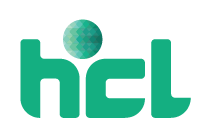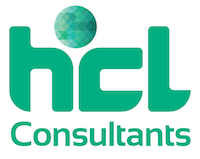On 26 May 2023, the European Commission launched the European Blue Forum to foster dialogue among all sea users, including offshore operators, stakeholders and scientists engaged in fisheries, aquaculture, shipping, tourism, renewable energy and other activities at sea.
The objective of the European Blue Forum is to develop synergies between maritime activities and reconcile the various uses of the sea.
It is a fact that the development of a sustainable blue economy must strike a balance between the needs of the increasing number of activities at sea and their use of maritime space, while preserving the marine environment.
More than 150 people attended the launch event of the European Blue Forum in Océanopolis, Brest, and around 250 joined the meeting online. The event brought together a very large array of participants, including government officials, fishers’ representatives, researchers, industry leaders, civil society representatives and coastal communities.
Looking back at the launch event: discussion and knowledge sharing
The launch event offered a tasty preview of how this new community of practice will work in the future.
Based on background papers, each panel discussion focused on one burning question that we have to address as part of the development of a sustainable blue economy in Europe.
What do we need from European Seas by 2030? Are we asking too much?
Participants explored the future of our European seas by 2030, considering economic, energy and environmental objectives. In this panel, speakers from different backgrounds agreed that changes are coming fast and need to be understood, managed and accompanied.
Participants agreed on the current unsustainable pressure of human activities on the marine environment and suggested a large variety of priorities. Also, as rapid changes can bring tensions, the Forum can play a crucial role. It can help anticipate and mitigate them, thanks to knowledge sharing and dialogue. A key takeaway from this session is the need to empower and support coastal communities in building mutual trust and cooperation.
What does a fossil-fuels-free sustainable blue economy look like? How can we as a community support this transition?
The second session, introduced by Member of European Parliament Pierre Karleskind (President of the Fisheries Committee), focused on the transition to a fossil-fuel-free blue economy and its challenges. Speakers representing the fisheries sector, maritime clusters, research institutes, NGOs and investment companies had a thorough exchange on the limited time we have to achieve our climate targets for 2030 and 2050.
Research and innovation are essential to developing carbon-free alternative technologies supporting the transition in the maritime sector. And many promising practices are emerging to lower the environmental impacts of blue activities, including in the fisheries sector.
What’s next?
Looking ahead, the European Blue Forum will continue to serve as a dynamic platform for collaboration, knowledge exchange and innovation.
The launch event only kicked off the work of the European Blue Forum. Further to this successful event, two online ‘deep-dive’ workshops will be organised in the second semester of 2023. The members will continue the in-depth discussions on the two topics addressed during the Brest event and work collaboratively towards a better understanding of the challenges we face and the solutions we can collectively identify. By the end of 2023, the Forum will publish two papers, gathering the inputs received during the year.
Source: European Commission | Ocean and fisheries (https://rb.gy/shxox)

